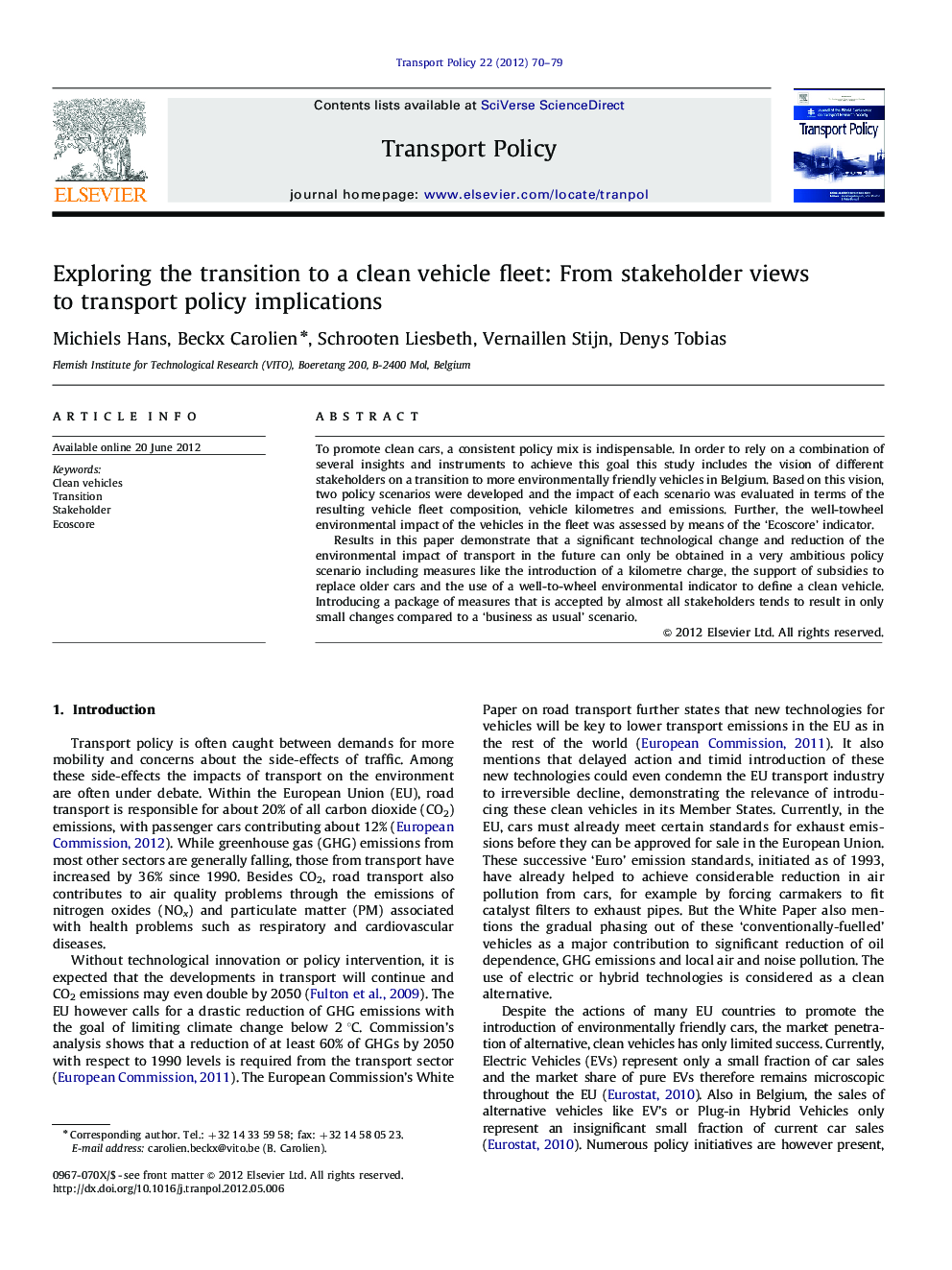| Article ID | Journal | Published Year | Pages | File Type |
|---|---|---|---|---|
| 1065241 | Transport Policy | 2012 | 10 Pages |
To promote clean cars, a consistent policy mix is indispensable. In order to rely on a combination of several insights and instruments to achieve this goal this study includes the vision of different stakeholders on a transition to more environmentally friendly vehicles in Belgium. Based on this vision, two policy scenarios were developed and the impact of each scenario was evaluated in terms of the resulting vehicle fleet composition, vehicle kilometres and emissions. Further, the well-towheel environmental impact of the vehicles in the fleet was assessed by means of the ‘Ecoscore’ indicator.Results in this paper demonstrate that a significant technological change and reduction of the environmental impact of transport in the future can only be obtained in a very ambitious policy scenario including measures like the introduction of a kilometre charge, the support of subsidies to replace older cars and the use of a well-to-wheel environmental indicator to define a clean vehicle. Introducing a package of measures that is accepted by almost all stakeholders tends to result in only small changes compared to a ‘business as usual’ scenario.
Graphical AbstractFigure optionsDownload full-size imageDownload as PowerPoint slideHighlights► New technologies for vehicles will be key to lower transport emissions. ► Including stakeholder visions is an indispensable factor for the market success of clean vehicles. ► A package of measures that is accepted by almost all stakeholders (‘the realistic scenario’) tends to result in only small changes in the vehicle fleet. ► A significant technological change and reduction of the environmental impact of transport was only reached in a more ‘progressive policy scenario’.
